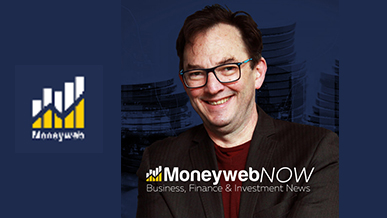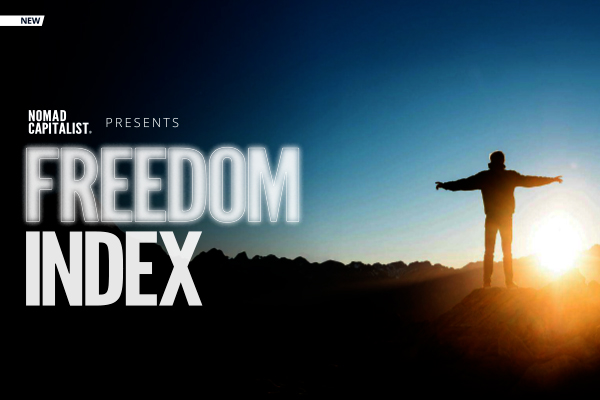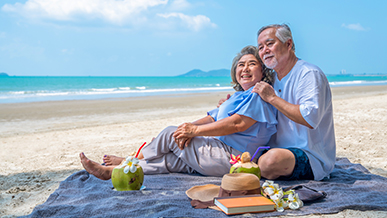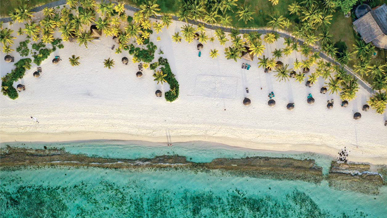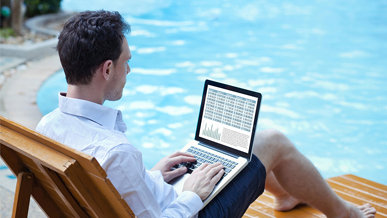As a business and retirement destination Mauritius is booming

Dani van Vuuren from the Sovereign Group outlines attractive options for South Africans considering moving to the island
SIMON BROWN: I’m chatting with Dani van Vuuren from the Sovereign Group. Dani, I appreciate your time today. We chatted a month or so ago. We were talking around the various different visa options for Europe. This time it’s Mauritius, which of course South Africans know. Many of us have holidayed there. It’s an island about four hours off our coast. And as a business destination it really has been booming in the last couple of years, or probably longer than that. It really has a fairly bright economic future staring ahead of itself.
DANI VAN VUUREN: Absolutely. Thank you for having me, Simon. Mauritius has maintained a stable and competitive economy over the years, and it is ranked one of the safest – in fact, the safest – country in Africa. That of course is very important to South Africa. From an economic perspective it is one of the top 10 wealthiest countries in Africa. So it remains a firm favourite for many individuals, their families, and of course businesses.
SIMON BROWN: And for those individuals there are actually a number of ways we can get residency permits. There are property investments, there is retirement, there is occupation. Talk us through some of these.
Property investment I think is fairly well known by most people. You buy a property, and you get residency rights associated [with that].
DANI VAN VUUREN: Yes. Mauritius is very generous in their residency programmes, and the fact that it is so vast it [has] caters for any sort of individual looking for a plan B. We break them up mainly in four categories. Firstly, like you mentioned, Simon, the property route, and that’s often called the ‘golden visa’. From a rand perspective it might be a little pricey, so you’re looking at about US$375 000 to qualify for that when purchasing property. But the other areas that are quite popular in the sovereign area with regard to enquiries are the other three, which are namely residency by investment through a company, which requires only $50 000 for a minimum capital investment, which is just under R1 million, which is quite favourable. And then of course the retirement permit, which is for anyone over 50 years who can contribute $18 000 per annum into a personal bank account in Mauritius. That is really popular for anyone looking at retiring in Mauritius. And then lastly would be someone who is perhaps a nomad, or just inquisitive that would go on the ‘premium visa’, which is a year-on-year visa available to applicants.
SIMON BROWN: Let’s touch on [the] digital nomad to start with. This is a visa which I didn’t know existed pre-Covid, but it is suddenly popping up all over the place. That’s the classic – if you don’t need to work from home, from an office based in Joburg or Cape Town or wherever, if you can do it from Mauritius it’s not onerous at all. And to your point it gives you a year and can, if need be, renewed.
DANI VAN VUUREN: It can be. And perhaps we have someone who is looking at property or a company, doing things from South Africa might be tricky. So if they go on the premium visa, they get to chat to our Mauritian office and find out whether this is something that they’d like to explore further. [Should they wish] to incorporate a company, the sovereign office in Mauritius can assist with that, or whether they want to deal with a real estate agent or developer that can assist them in finding the ideal property, that might not necessarily be at a value starting at $375 000. So there are various options which, as I mentioned, [are] quite generous and flexible, and [people] have the opportunity to explore [them] more easily when they go to the island.
SIMON BROWN: I take your point on that. The retirement one as well – the income is not onerous. Mauritius is an island, so a lot is imported. Your beer is going to be a little more expensive because it has to fly its way to you. As I understand, it’s for the 50-plus, and a fairly easy option for those who are looking for beaches and sunshine.
DANI VAN VUUREN: Absolutely. And it’s not income of a passive nature. In Portugal for example, as I mentioned the last time we spoke, they have the D7 visa, which is a passive-income route. Not all of us have passive incomes. Perhaps we’ve just got some rental income, perhaps it’s just our salary. And of course with the retirement option being [for those] older than 50, you can contribute up to R400 000 per annum in terms of rand value to your personal account to be used and invested. So it’s very flexible. It’s not a contribution to the government, which is really appealing to South Africans who are older than 50. In our eyes that’s not really a retirement age, but in Mauritius they see it as that, which is quite favourable.
SIMON BROWN: Well, they are islanders, they think 50 is old. And that’s an important point. The money is not to buy a property or to invest in a business, that’s just money for you to live on, your day-to-day expenses, your accommodation and the like.
DANI VAN VUUREN: Absolutely. And we have our single discretionary allowance as South Africans, and many ask us, ‘Dani and team, where do we take our money and where can we go?’ And they like to have the option of using that [allowance] for perhaps a permit and obtaining residency or citizenship at some point in time.
SIMON BROWN: We’ll leave it there. That’s Dani van Vuuren of the Sovereign Group. Dani, I always appreciate the insights.
Source : moneyweb.co.za



